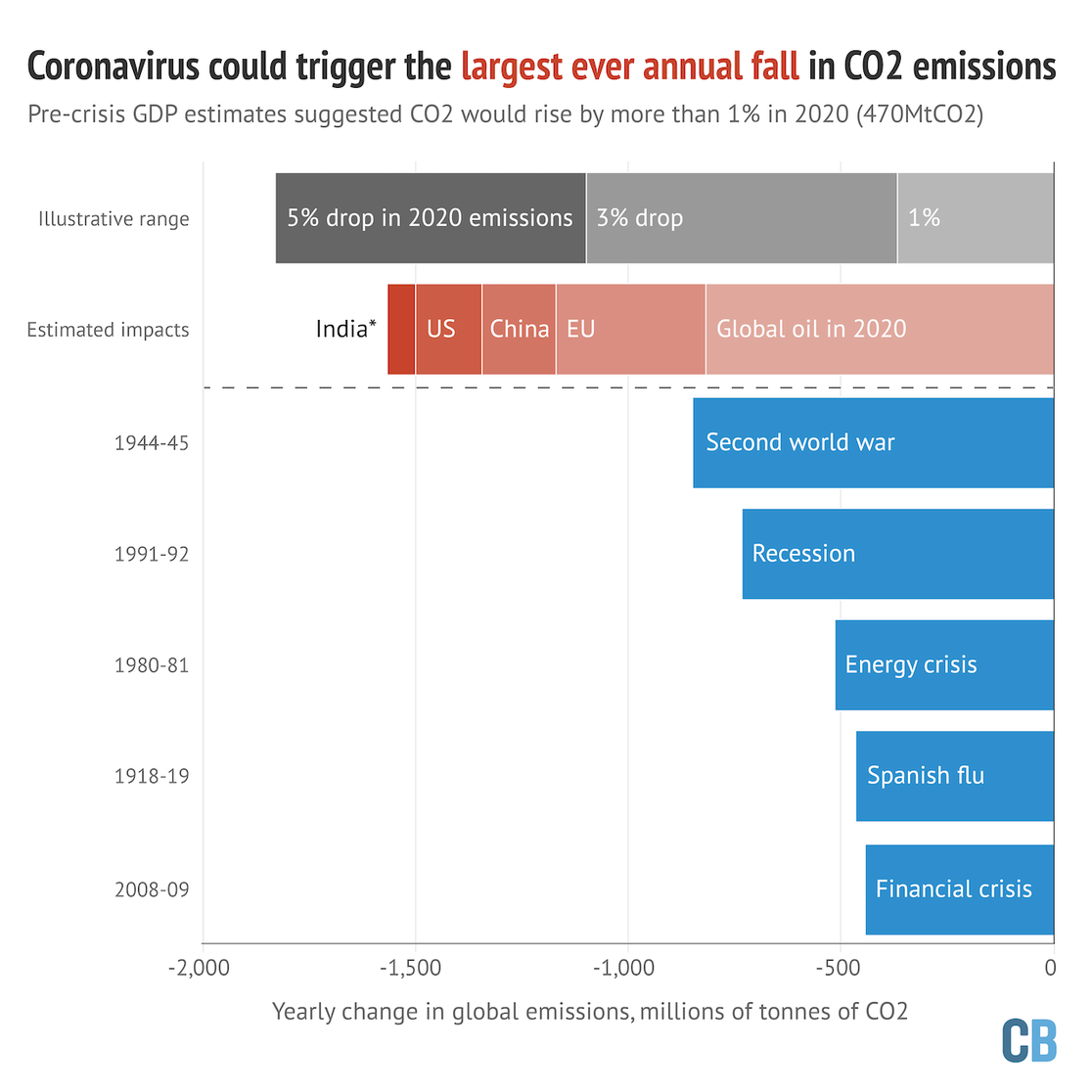Coronavirus leads to historic drop in carbon emissions
Add Axios as your preferred source to
see more of our stories on Google.
The coronavirus outbreak will likely cause a drop in global carbon dioxide emissions that's far larger than any prior crisis or war, per a new analysis that combines multiple datasets to provide a wide-ranging look at the pandemic's effect.
What they found: The analysis from the U.K.-based Carbon Brief provides a tentative estimate that global CO2 emissions are likely to fall by more than 4% from 2019 levels.

- Data from countries and sectors not yet available is expected to increase the total, they find, and also note that some estimates of oil consumption declines have grown since they completed their post.
- They also caution that efforts to gauge the virus' effects are complicated by unknowns about the duration of the crisis and lockdowns, among other variables.
Why it matters: It provides a sense of the staggering effects of the outbreak that's freezing huge amounts of travel and economic activity.
- But it also provides an unfolding, real-time look at the immense challenge implementing policies that cut emissions steeply enough to meet the goals of the Paris climate agreement.
Here's how they contextualize a one-year drop of more 4%...
"Global emissions would need to fall by more than 6% every year this decade — more than 2,200MtCO2 annually — in order to limit warming to less than 1.5C above pre-industrial temperatures."
Don't forget: Tracking the emissions effects isn't the same as celebrating them. The Carbon Brief piece clears its throat by noting the pandemic is "decimating lives, livelihoods and the normal functioning of society."
Go deeper: The pandemic and pollution
